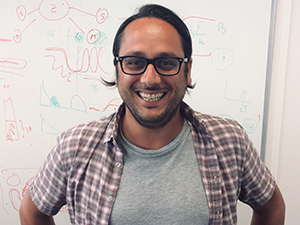Researchers have tracked how the most common form of oesophageal cancer and its immune environment change during a standard form of treatment – offering vital clues that could shape future therapies, so they work for longer.
By analysing samples from patients with locally advanced oesophageal adenocarcinoma (EAC), researchers discovered that while the cancer’s genetic makeup remains stable during treatment, its biological behaviour and tumour microenvironment change significantly.
The study, co-led by researchers at The Institute of Cancer Research, London, and the Technical University Hospital of Munich, details how EAC adapts to survive, even without acquiring new genetic mutations – a phenomenon known as phenotypic plasticity. These new insights could help shape future treatments that target not just cancer cells, but also their surrounding environment.
How the tumour evolves, and why it matters
Oesophageal adenocarcinoma (EAC), a cancer of the oesophagus – the tube that connects the mouth to the stomach – is one of the deadliest forms of cancer due to often late diagnosis and limited effective treatment options. It sees a five-year survival rate of less than 50 per cent and a median survival of under a year in advanced cases. Once relatively rare, it has become the dominant subtype of oesophageal cancer in high-income countries, with incidence rates rising sharply in recent decades.
The research team, largely funded by the German Cancer Consortium and Cancer Research UK, analysed tumour samples collected before, during and after treatment from 27 patients enrolled in the MEMORI trial. The study was designed to investigate how EAC responds at the molecular level to neoadjuvant therapy – treatment given before surgery to shrink the tumour and improve outcomes – followed by surgery. By applying cutting-edge techniques, they were able to build a detailed picture of how the tumour and its microenvironment respond to therapy.
While genetic mutations didn’t change consistently during treatment – either chemotherapy or a combination of chemotherapy and radiotherapy followed by surgical resection – the team observed shifts in gene activity and the immune landscape. Immune and stromal pathways, which regulate immune cell activity and the tissue supporting the tumour, respectively, were switched on. The tumour cells altered their behaviour without the cancer evolving into new, genetically different groups of cells. This behavioural shift may help the tumour avoid detection or attack by the immune system – a process known as immune evasion.
These results, published in Nature Cancer, suggest that cancer’s resistance is not necessarily driven by mutations but by flexible changes in how tumour cells behave and how they interact with their surroundings.
Understanding resistance could unlock smarter therapies
Importantly, the study linked poor treatment outcomes with signs of immune evasion, such as reduced T-cell activity and a lack of immune cell expansion. This suggests that targeting the immune environment, and not just the tumour itself, could improve outcomes for patients.
These findings highlight the potential of combining immunotherapy with standard treatments in future clinical trials. While still early-stage, the research provides a valuable framework for designing more effective therapies tailored to the biology of each tumour. These findings suggest that immune evasion may be key as to why some treatments fail. This points to the potential value of combining immunotherapy – stimulating the body’s immune system to help attack cancer cells – with standard treatments in future clinical trials.
Professor Trevor Graham, study co-lead and Director of the Centre for Evolution and Cancer at the ICR, said:
“This kind of reverse translation – where we deeply explore samples from patients who are in clinical trials – helps us understand why treatments fail and what we might do differently. Ultimately, we hope it will lead to new clinical trials and, eventually, more successful treatment for people with oesophageal adenocarcinoma.”
Combining immune-targeting therapies with standard care
The research team plans to expand its research within EAC to include a broader range of tumour presentations, including those not visible through PET imaging techniques, to validate their findings across a wider patient population.
Dr Melissa Barroux, first author of the study, and Gastroenterology Resident and Clinician Scientist at TUM Klinikum Rechts der Isar, said: “While any clinical impact is still several years away, this work shows us that a new generation of oesophageal cancer treatments will have to tackle both the cancer and the ecosystem it thrives in.
“With so many advanced oesophageal adenocarcinoma patients only living for less than a year, it remains a cancer of unmet need. The ultimate aim is to develop smarter, more personalised treatment combinations that could finally shift the needle for patients with this often-deadly disease."
.tmb-propic-md.jpg?Culture=en&sfvrsn=c25d2b2f_9)
 .
.
